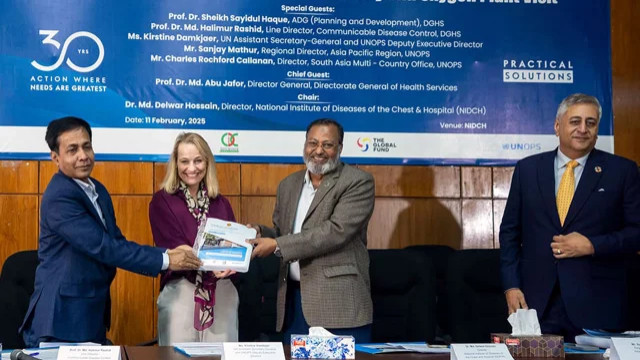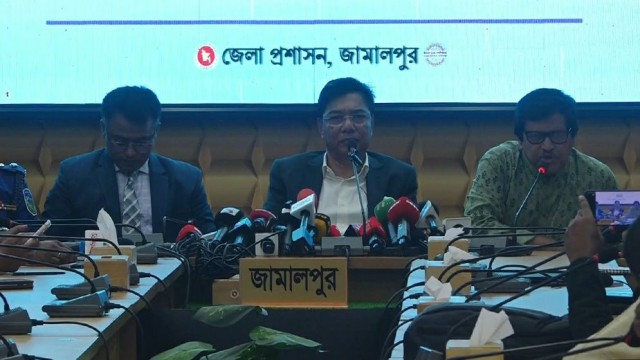Dhaka, Feb 12 (V7N) – Christine Damkjer, Assistant Secretary-General of the United Nations and Deputy Executive Director of the United Nations Office for Project Services (UNOPS), visited the National Institute of Diseases of the Chest and Hospitals (NIDCH) on Tuesday to assess recent improvements in Bangladesh's healthcare infrastructure.
NIDCH is among 29 hospitals across Bangladesh that have benefitted from the installation of Pressure Swing Adsorption (PSA) plants, a project under the National Malaria Elimination Programme (NMEP). The initiative, funded by the UNOPS Global Fund and implemented in collaboration with the Directorate General of Health Services (DGHS) and other partners, is part of the Government of Bangladesh’s COVID-19 Emergency Response Plan.
The PSA plants have been strategically installed in hospitals to ensure reliable access to oxygen therapy, especially in underserved communities. These installations aim to address the critical need for oxygen, highlighted during the COVID-19 pandemic, and to strengthen emergency medical services in Bangladesh.
During her visit, Christine Damkjer expressed her appreciation for the collaboration between UNOPS, the Bangladesh government, and other health partners. "UNOPS is committed to ensuring accessible and sustainable solutions to Bangladesh's healthcare infrastructure. We are very proud to support Bangladesh in achieving its healthcare goals by collaborating with our partners," Damkjer stated.
Professor Dr. Halimur Rashid, Line Director of Communicable Disease Control, highlighted the transformative impact of the PSA plants on the national healthcare system. "This initiative will bring a major change in our healthcare system. For a long time, we have been relying on cylinder-based oxygen, which is often unreliable, expensive, and difficult to manage in emergency situations," he said.
With the installation of PSA plants, 29 government hospitals are now self-sufficient in their oxygen supply, significantly reducing dependence on external suppliers and ensuring consistent treatment for critically ill patients. "This has created certainty in the treatment of critically ill patients," Dr. Rashid added.
The visit underscores the UN's commitment to supporting Bangladesh's healthcare system, with a focus on sustainability and resilience in the face of future health emergencies.
END/MSS/AJ



























Comment: